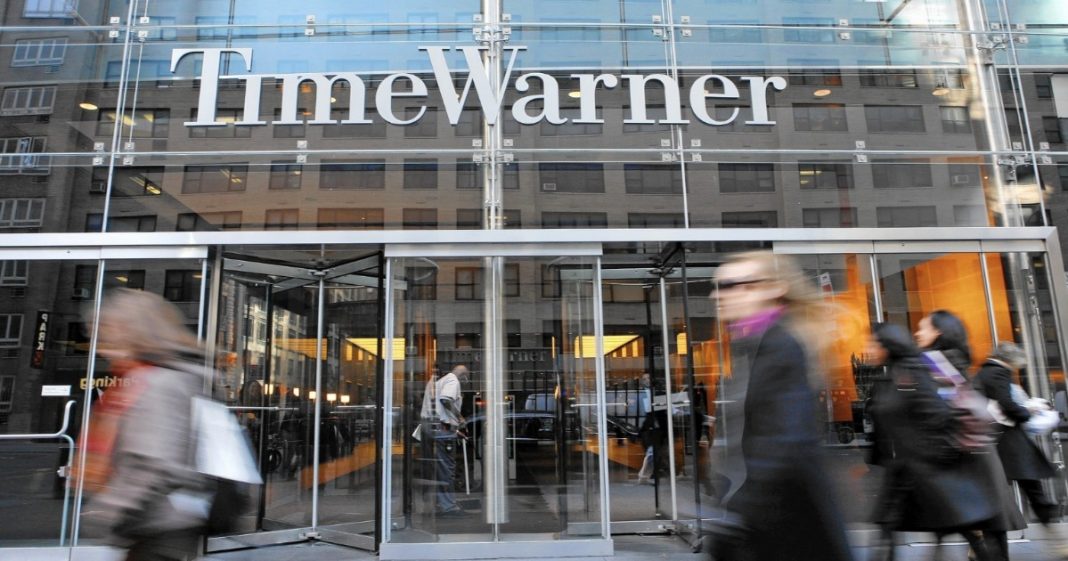The “merger madness” continues unabated. Over the past weekend, telecom and media monster AT&T announced its plans to buy Time-Warner – a vast empire in and of itself that controls CNN, HBO, TNT, TBS in addition to several film franchises (including the Harry Potter and Batman series). This announcement comes in the wake of AT&T’s recent acquisition of satellite provider DirectTV.
Should this deal go through, it would create one of the largest media corporations in history. Obviously, this is a great deal for stockholders and executives (the CEO of Time-Warner stands to make $100 million), but it’s a raw deal for consumers. What’s worse is that the deal may go through without any review from the FCC.
How could this happen? It would be the result of a neat little bit of legal trickery on Time-Warner’s part. As it turns out, Time-Warner owns only a single media outlet subject to FCC regulation. That is a small Atlanta, Georgia television station, WPCH. In order to facilitate the deal without interference from the FCC, Time-Warner could simply sell off that station – meaning that AT&T would not be acquiring any FCC-licensed outlets, and thus avoid any review from the federal regulatory agency. Although the sale of WPCH would be subject to FCC oversight, that transaction would have nothing to do with the AT&T merger.
According to Geetha Randanathan, an analyst with Bloomberg, corporations frequently employ such end-run tactics around regulators.
“Companies use sales, transfers, and spinoffs around larger deals in order to face friendlier regulatory review all the time,” she says.
The merger is far from being a done deal. It turns out that Time-Warner has several “Earth Station” licenses, allowing it to upload video to satellites, all subject to FCC regulation. Furthermore, a corporate attorney for the telecom industry believes that AT&T will still seek FCC approval for the merger, stating that for the company to engage in a “jurisdictional war” was “inadvisable.” Nonetheless, people and organizations opposed to the merger are not taking any chances. They’re calling on the Department of Justice to stop it.
While either the FCC or the DoJ could put the kibosh on the proposed merger, the latter would have a more difficult time of it. In order to block a merger, the FCC requires the companies in question to demonstrate that the merger will serve the interest of U.S. consumers. FCC decisions are based on feedback from the public during the comment period.
On the other hand, the DoJ must conduct an investigation in order to determine if the merger would violate antitrust laws. If this is the case, the DoJ can file suit in federal court – but the burden of proof is on the plaintiff (the DoJ), not the defendants (AT&T and Time-Warner).
In the past, the DoJ and the FCC have worked together. Those combined efforts stopped Comcast’s takeover of Time-Warner Cable last year as well as its attempt to acquire T-Mobile USA in 2011. This time, however, the DoJ may be on its own.
In any event, yet more media consolidation is a bad deal for consumers. AT&T has been at the forefront of the battle against Net Neutrality, and has been instrumental in gathering private information for the NSA. It has stood in the way of local communities attempting to create their own public broadband systems, while overcharging consumers even as it increasingly reduces consumer choices. Furthermore, it remains an ardent member of the American Legislative Exchange Council (ALEC), the organization that continues its slow-motion coup of our still nominally-democratic government.
AT&T is already a bloated media juggernaut with far too much power over what we see and hear. It is a cancer on the body politic, and radical surgery is called for. This is a great time for all of us to get in touch with our members of Congress and demand that they intercede and prevent this disastrous merger.




